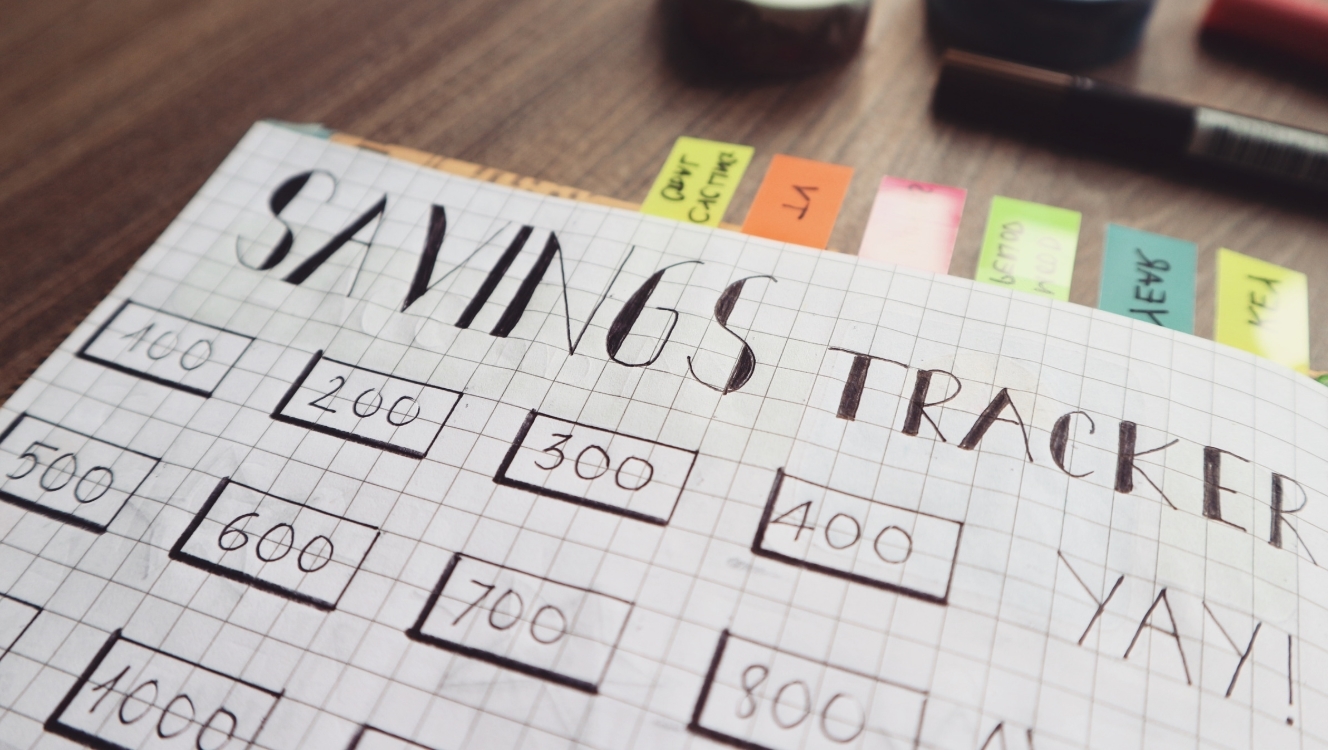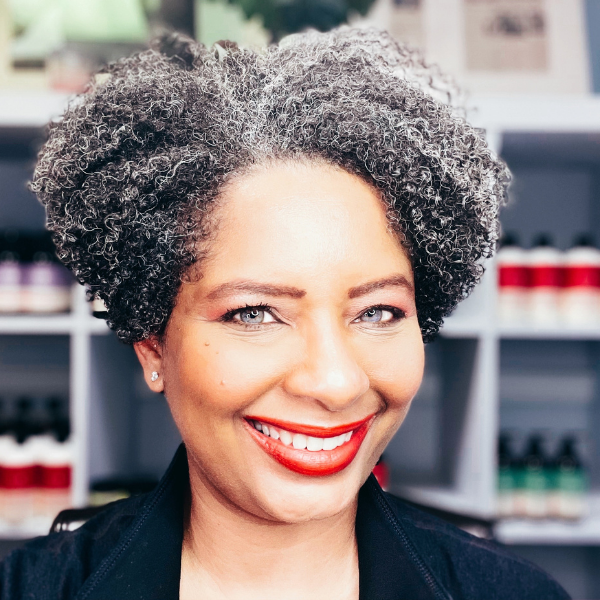Amidst the whirlwind of alarming media coverage and events unfolding on the news, we can be forgiven for feeling more than a little concerned about what the future holds for us financially, especially for the rest of the year. Some of us may be facing immediate financial setbacks- but in the face of this adversity, we’re choosing to pony up as the smart, resilient women we are... to find strength and solutions instead.
With severe economic disruptions due to the Coronavirus outbreak affecting businesses and households everywhere and threatening a global recession, there’s no time like the present to take personal inventory of our financial positions. We’re taking this opportunity to not only batten down the hatches and protect our finances now, but also to explore some ideas that will set us up for financial freedom well beyond 2020.
Despite the global health crisis and turbulent economic climate upon us, there’s a silver lining to the cloud. Remember, these uncertain times aren’t going to last forever, and keeping our eyes on the prize with a long-term view will work wonders to helping us all bounce back. So let’s stay focused and do what us women do best: Nurture. Innovate. Be passionate. Protect the ones we love. Look to the future.
Right now, that means making some smart, strategic money moves. We’ve got more time available to focus our attention inward, on matters close to home. If you’ve been letting some basic measures to ensure your financial security fall by the wayside, follow these practical steps to make 2020 the year you become financially bulletproof.
Always Carry an Umbrella

There’s nothing to make us feel unshakeable quite like having a bit of extra cash saved up to get us over a financial hump. You never know when something unexpected might pop up, and life happens... So prepare for it.
Have you heard of The Four D’s? We’re talking about Death, Divorce, Debt, and Dodgy Decisions. It’s not super fun to think about the potential of these four threats to your financial future throwing a wrench in the works, but there’s a lot of us who don’t ever give them a single thought. And when we don’t see ‘em coming, they can totally derail us financially and the effects can last several years.
Being pragmatic and taking some time to think realistically right now about these potentially disastrous blows to your bank balance, will give you an understanding of how you’d be best to prepare yourself if anything ever does happen. Give some thought to a plan of action, and budget accordingly. Think about what you’d do first, how you’d be feeling and coping at the time, if you’d need to take unpaid time off work, and how much money you’d need to navigate the tumultuous time.
During times of stress, the last thing you need is the knowledge that you’re leaning heavily on your credit cards and getting yourself into debt in order to stabilize an emergency situation.
- Based on your income, try to save up for at least one month of expenses for your dedicated emergency fund.
- Open a separate bank account and make the commitment that’ll you only dip into for true emergencies, such as medical bills, home repairs or completely unexpected expenses requiring immediate action. Keep this separate from your savings accounts where you’re putting away funds for fun things, like upcoming projects or vacations.
- Consider letting these savings go to work for you while you forget about them, by parking your funds in a high yield cash management account. Many banks offer these cash reserve savings accounts that have a higher interest rate than most checking accounts, with little to no fees... so you can watch your balance rise as you rack up substantial interest, simply by not touching it.
Create a Financial Tracking System You Actually Enjoy Working With

If checking in on your finances seems like an enormous chore, you might need to rethink your tracking strategies. Different things work for different people, so while an app on your phone to track your dollars might resonate with some, others might actually enjoy keeping a paper journal of their income vs. expenditure more. We’re certainly more motivated to keep track of our money when the process is a relaxing experience, of curling up on the couch with a cup of coffee and diving into a beautiful leather bound journal to map out our projections. It sounds simple, but creating an uplifting experience of putting pen to paper with some colored markers and beautifully designed stationery can be enough to make us actually look forward to doing a budget.
If you’re wired more towards a digital direction, there’s a wealth of online resources and programs out there, where you can integrate all your finances. You can link your bank accounts, bills and credit score data with these apps to have an up-to-the-minute picture of where you’re at, along with suggestions on your budgets based on their projections.
- Create a system to predict your next 12 financial months. Start by determining your income for that time frame, and set a budget for how you plan on spending or saving that money. Set a reminder to check in on your progress every week or month, to see if you’re on track with what you’re estimating.
- The process of tracking your expenses and making predictions for the near future helps create healthy habits. Documenting the money in and money out and factoring in the same for the year ahead creates a subconscious link that prompts you to be aware of what you’re spending. You’ll reconsider whether your purchases are really worth it... Talk about a reality check- say you predict that based on the last few weeks’ expenditures from buying lunch at work rather than bringing it from home, that in 2020 you’ll literally be spending thousands of dollars on SANDWICHES… Sandwiches. OMG. You’ll be more inclined to have a brown bag lunch from home now, right?!
- DIY your online budgeting if you’ve got reasonably straightforward affairs- check out the newest accounting tools by comparing the many online financial management apps and programs like Personal Capital, Mint, and Quickbooks if you run your own business.
- If your head is spinning at the mere thought of it all, it might be time to call in the big guns. Hire an accountant or financial planner, as they can point out any areas you could improve on and help you review your reports subjectively.
Remember, You Don’t Want to Work Forever

When we’re young, we think we’re invincible… or so our actions reflect. Sometimes people don’t consider the fact that most of us are going to grow old, and that we’re going to want to spend our Golden Years enjoying the pleasures of retirement. A disturbing trend among folks approaching retirement age is the realization too late that they haven’t put away enough money over the years so they can enjoy a comfortable life after our working years are behind us. Or worse, we’re not set up financially to even be able to retire or work less hours when we’d like to...
We’d love to look forward to retiring at a younger age, when we’re still healthy and vibrant enough to live out our days traveling the world, living in a beautiful home that we own, and pursuing relaxing hobbies we never had time for before... Rather than having to scrape by on a meager pension, or rely on handouts from our kids.
Don’t fall into the trap of not looking ahead to what you’ve got saved up for your retirement. It’s never too early to start setting aside additional funds in your 401k or opening a Roth IRA, to ensure that you can relax when the time comes to wrap up your full-time 9 to 5 life.
- If the company you work for offers its employees a 401k (Individual Retirement Account), they’ll be responsible for paying you out a specific amount when you retire. The great news about these plans is that you’re also able to leverage the benefits and make additional voluntary contributions that’ll amp up your retirement fund. The IRS will allow you to make a capped amount of tax-free deposits per year, that varies depending on inflation. For 2020, you can stash away an extra $6,000 per year for your Golden Years... and many companies will match this contribution dollar for dollar. Even if your budget doesn’t allow you to make the maximum yearly contribution, even by just funnelling a few extra dollars into it that are matched by your employer is free money and adds up over the years!
- If a 401k isn’t an option for you, you can still look into opening your own Roth IRA account. These personal retirement accounts are structured specially, getting you to pay the taxes on the money you’re putting into your account now when you’re still earning and can afford to- and then all your future withdrawals will be tax-free. Many people opt for a Roth IRA if they think their taxes are going to be higher in retirement than they are right now. These are a great option if the company you work for doesn’t offer a 401k, if you’re self-employed, or if you’d like to beef up your retirement fund on top of what you’re already getting from your employer’s 401k contributions.
Secure Rewards That Actually Work For You

Are you getting the best bang for your buck when you do make purchases? Your credit cards have rewards programs where you’re accruing points with every purchase… but have you checked in lately to see if those points are actually a benefit to you personally? It’s a good idea to make sure your rewards are able to be used on something that you’d otherwise be buying anyways.
- Many credit cards offer points towards flights and hotels, which is great if you’d be booking trips and paying for these expenses out of your own pocket whether or not. If you’re not a big traveller, check out some different credit card companies that offer different rewards that you’ll actually use. Look for cards that will give you points towards cash back, groceries or dining out instead.
- Be wary of store credit cards. They lure us in with an upfront promotion or big discount to get you to sign up on the spot, but more often than not, the ongoing discounts you get at that store drop off significantly, and they’ll have high interest rates.
- Try signing up for some apps that offer cash back, rewards programs and automatically applied coupons when online shopping. There are a multitude of apps that scour the web for the best price on an item by comparing all the available retailers, and others that will notify you of your cash back percentage offer when checking out at hundreds of stores. These cash back opportunities can range from 5% up to a whopping 40%, and the coupons will save you not only a good chunk of change, but hours of browsing and comparing prices.
---------
We’re determined that 2020 can be our best financial year yet. We’re all taking a step back and giving some thought to our financial security in these testing times.
While it’s a bit of a wake-up call to some of us who’ve been neglecting to notice where our hard-earned dollars have been going for a while, and how we’re going to ensure our comfortable financial future... there’s no time like the present to grab the reins and take control.
Take some time in the coming weeks to have a realistic and big-picture look at your current financial situation, and what you hope to see it looking like in the near and distant future. By making some predictions for the rest of the year’s figures, we can prepare ourselves for anything on the horizon and make some moves towards becoming more financially confident and comfortable than ever before.
Wishing you all health, resilience and wealth...
~Keneesha




